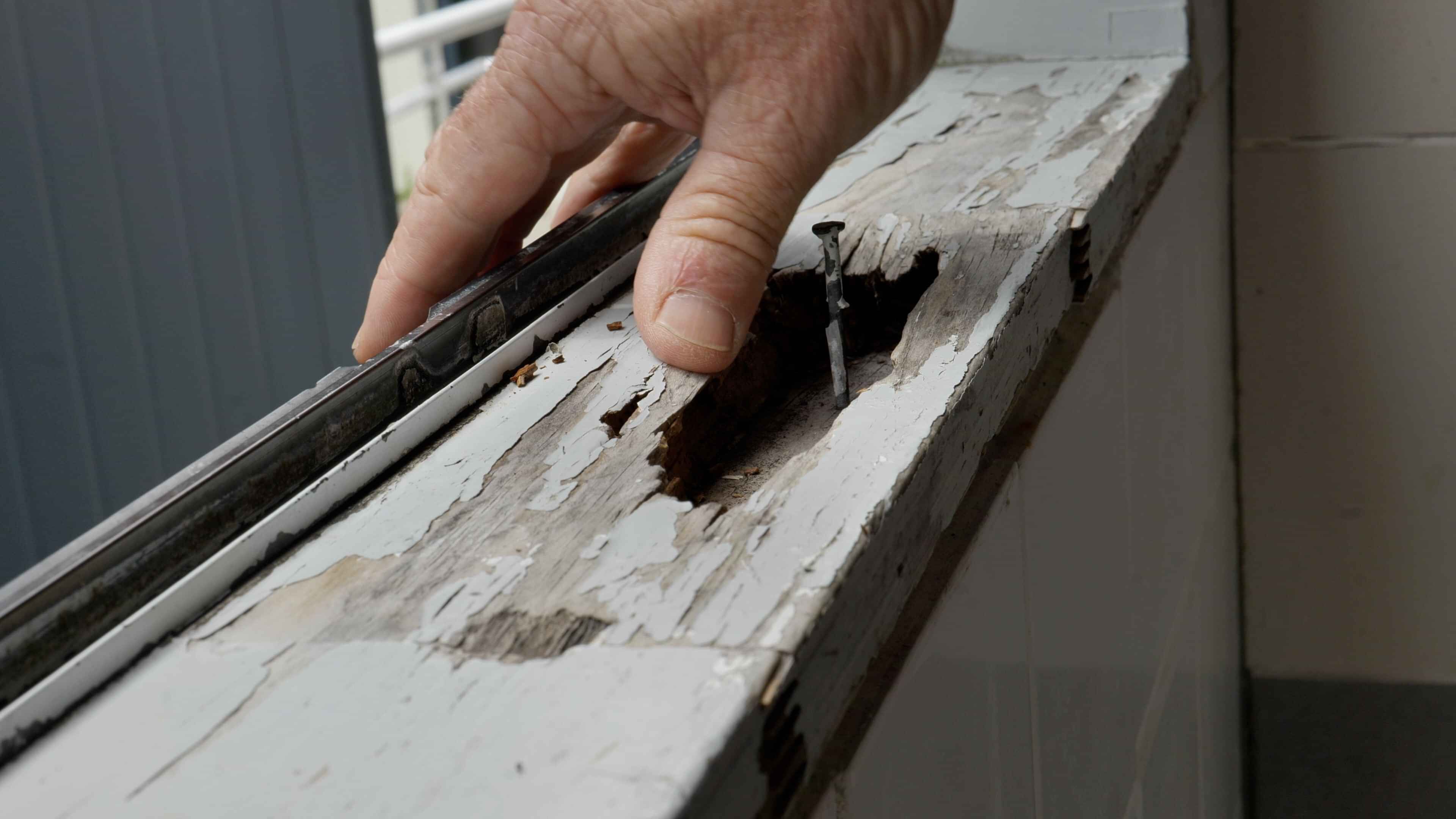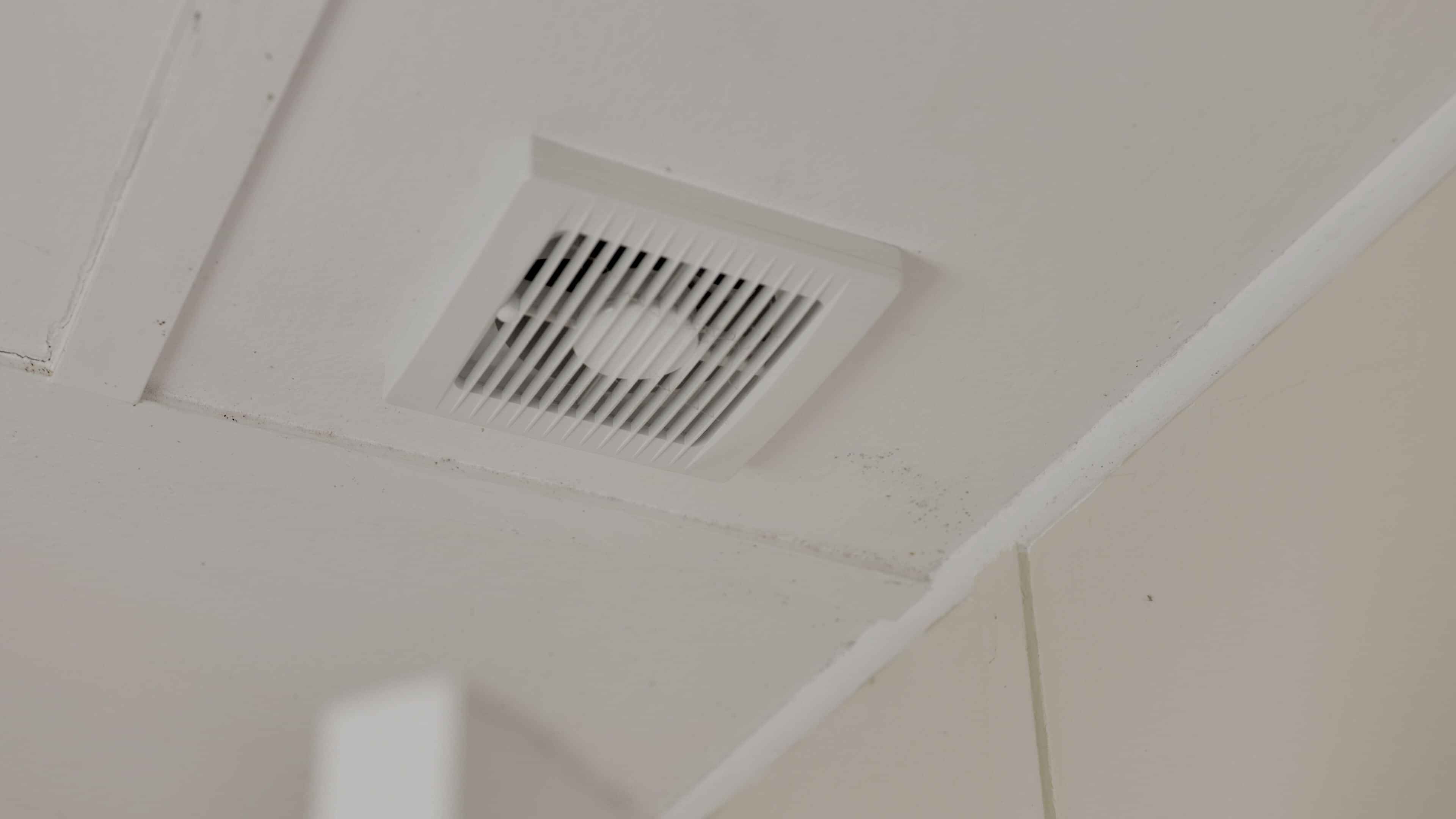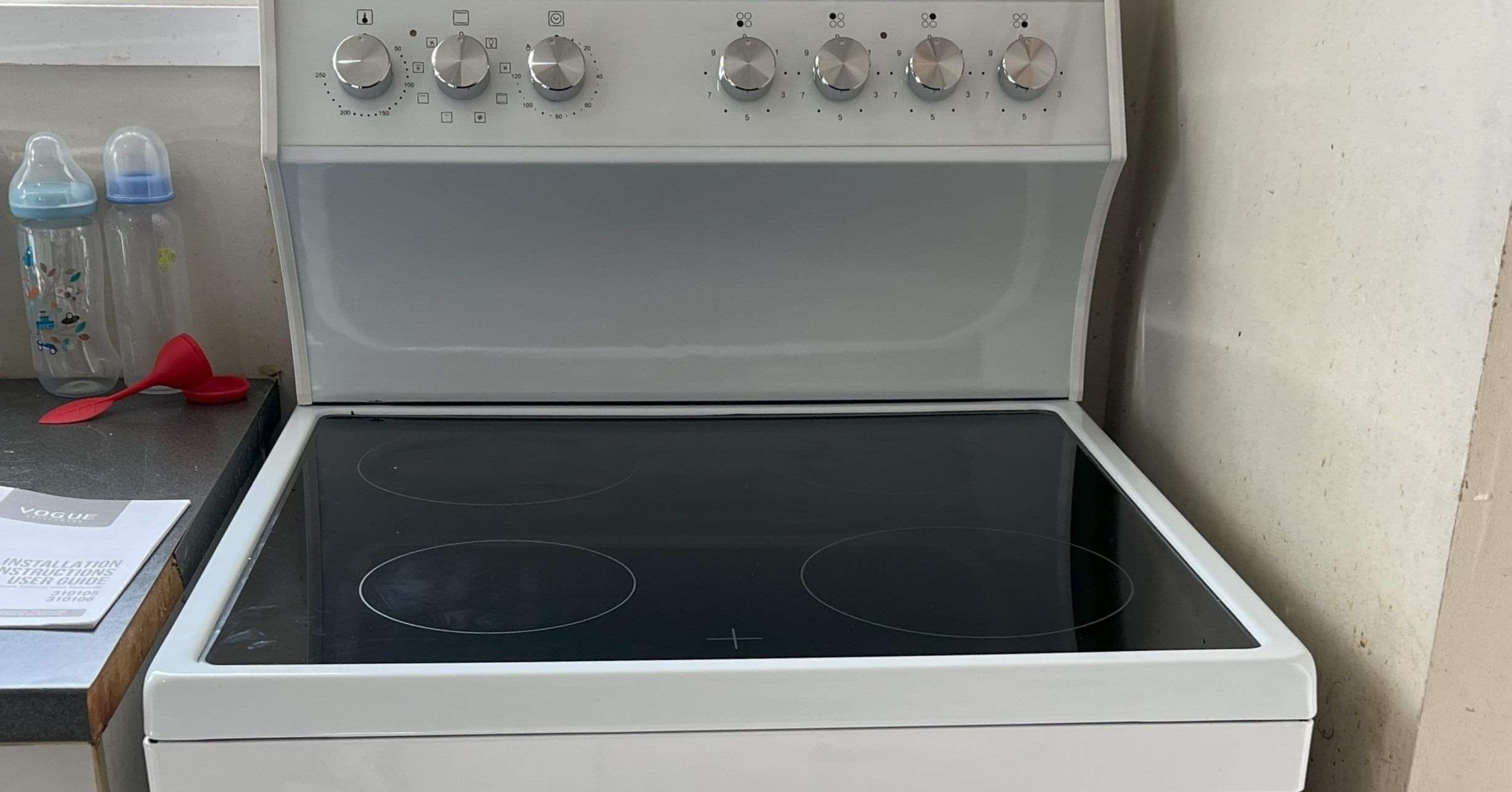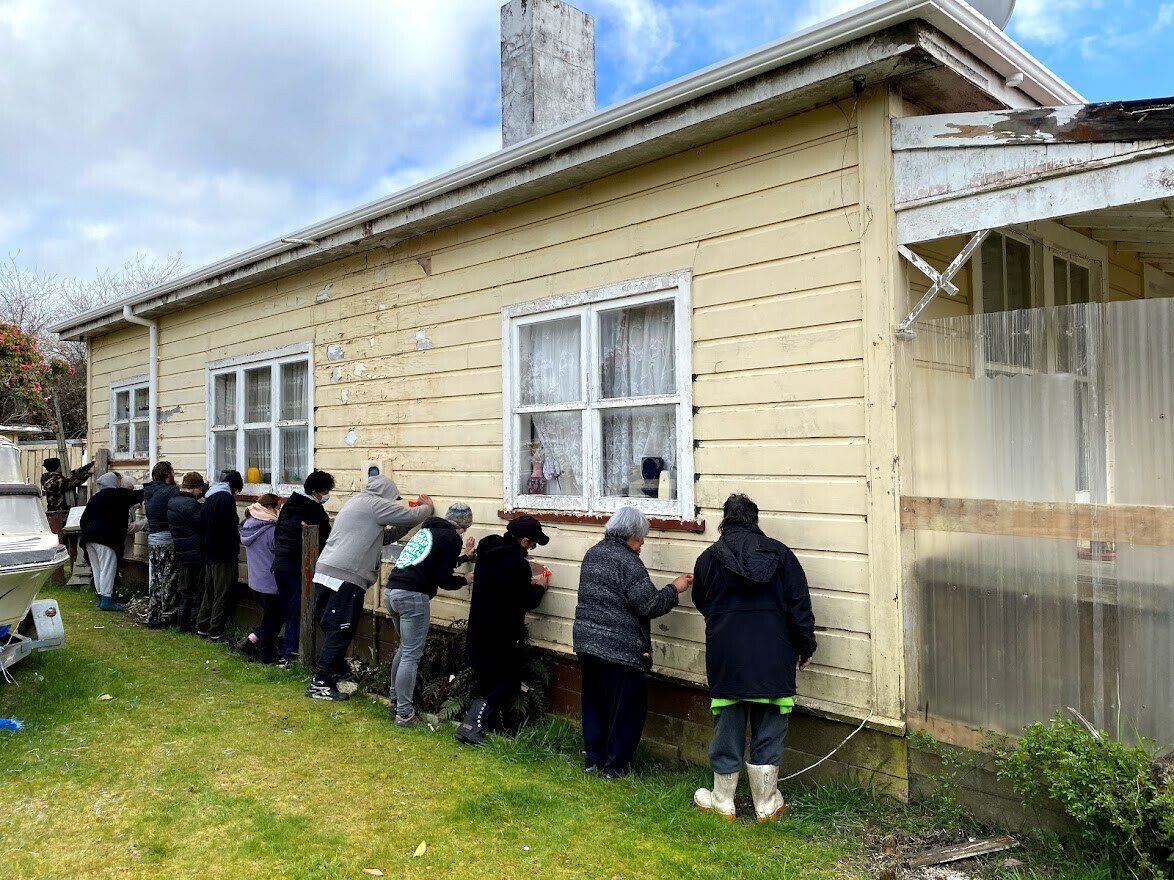Evelyn's Journey

Evelyn’s* whare/home is everyone’s whare. It has always been like that. Evelyn’s whānau/family have owned it for 50 years and it has always had an open door policy.
“My mum and dad, they always had their doors open for anyone and everyone, I remember my dad use to pick up hitchhikers from different countries and bring them over for the night if they needed, then they would be here a week later and my dad’s done them a hangi, my mum’s made trifle and jelly… it’s kind of something I’ve continued.”
Evelyn opened up about how it’s a place her family seek comfort in, and regularly turn up unannounced as they know they will always be welcomed in; even when there wasn’t spare food or bedrooms, they would make it work.
When we first met Evelyn in 2021, she had 18 family members living in the three-bedroom 1960s weatherboard whare. Despite being a haven for Evelyn’s whānau, the home was cold, damp, and deteriorating. There wasn’t spare pūtea/funds for necessary repairs to make the whare what it needed to be for Evelyn and her whānau. They needed mattresses, blankets, and pillows so her whānau, including a three-week-old pēpi/baby and many young tamariki/children, were no longer sleeping on the cold floor of her lounge. We were able to provide these items and are now on a hikoi/journey with Evelyn to make her whare warm, dry, and healthy for all who stay, not just for current whānau, but “maintain[ed] for my grandchildren and great-grandchildren.”
We wanted to help Evelyn address the dampness in her home, so we focussed on four key interventions: a more effective showerhead, a bathroom extraction fan, a range hood in her kitchen, and education on how she can best run the whare. These interventions have made a huge difference to the living condition in Evelyn’s whare, not just for her and those living with her, but have also created a healthier haven for her extended whānau to find comfort in.
There can be a lot of emotions and struggles in asking for awhi/support for many whānau, despite needing the extra help. Evelyn shared that there can be a feeling that “if you want your house maintained, you should be able to do it yourself.” It took her time to acknowledge that it isn’t that easy. There can be financial strains, and physical injuries that prevent DIY repairs making this statement not true and not always so simple. The relationship we have built with Evelyn has focused on providing a hand-up, not a handout, and has inspired Evelyn to share our mahi, breaking down this mindset she first held.
“I tell a lot of people about the help you have given me, it’s not something I keep to myself, if I know someone needs help, I try and pass you on, and try and get them to open up, because sometimes people are just like me.”

Now, Evelyn has five whānau members permanently in the whare. She is the full-time caregiver of her two-year-old grandson, three-year-old granddaughter, and her teenage niece permanently stays in the whare too. Evelyn used to work at the wānanga/tertiary education which operates through Te Ao Māori as a part-time Kaiako/supporter. However, when her mother passed 7 years ago, Evelyn became the full-time caretaker for her nephew who lives with a significant disability. Speaking with Evelyn, her compassion and unconditional love for her whānau was clear.
Despite this already being a full and busy house, Evelyn shares there are often additional whānau staying in the whare at any time.
“I’ve always got someone who needs a roof over their head… this [whare] was my mum and dad’s, passed down to me, passed down to everyone [in my whānau], this house gives them something, no matter what happens to me, this house will always stay in this family.”
Her whānau know her whare will be there, with a roof over their head, and Evelyn’s family-famous cooking.
Here’s the thing. When Evelyn welcomes whānau into her home, she isn’t just providing them with the home’s iron roof. Her whānau love her cooking, and Evelyn is known to cook up a tasty feed when visitors come to stay. However, this can be challenging, cooking for a large group with salivating expectations… when the oven doesn’t properly work.
“They like it when I cook, [and] I love to cook… but sometimes it just gets too much.”
Whilst we are dedicated to improving housing conditions, we are also very aware that a home is more than just the structure, it's the people in it. Evelyn's home is a wonderful mix of housing structure, extended whānau, heritage, generosity, and hospitality. As we sought to improve the warmth and dryness of Evelyn's home, we couldn’t help but notice how important cooking was to her and her whānau. This drew our attention to her very well-used oven which has been in Evelyn’s whare for around 20 years.
It has created many meals for whoever is sheltering at the time; however, in more recent years, it has become temperamental. When the oven is turned on, it only has one temperature now, full heat. Evelyn shared she has developed techniques to cook with this extreme heat, however, it’s difficult to teach her moko/grandchildren and nieces as everything burns. She laughed relaying a memory of her nieces cooking dinner recently when they admitted, we were only in the lounge for two minutes and Evelyn already knew the potatoes were burnt. They didn’t know the oven would do that.

Evelyn also has safety concerns with her two young moko around the oven as the door doesn’t close properly. Her youngest moko likes to touch the oven door, so she consistently worries about him in the kitchen on top of juggling cooking and caretaking for the others in the home. What Evelyn didn't mention, but we noticed, was the significant cost impact that a poorly functioning oven can have on her energy bill. Evelyn's commitment to feeding her whānau was costing her much more than it should and therefore adding to the household costs.
The HHI has a strong relationship with Variety, the Children’s Charity. Through this relationship, we have been able to regularly work with Variety to get pēpi and tamariki beds, cots, and a range of other essentials. In this situation, Variety had reached out to us with Trade Depot vouchers, generously donated by MediaWorks. We used these vouchers to supply whānau essential appliances to improve the quality of the whare. Evelyn was provided with a new oven as part of this charitable donation and was overjoyed.
“The oven is mean! Having an oven that will work properly will make a huge difference to being able to cook for family coming round, and will make it easier for others to help who don’t know the difficulties of the old oven.”
As well as making lighter work feeding whichever hungry mouths are seeking refuge at the time, Evelyn is excited to teach the next generation in her wharekai/kitchen joking about how she “can have cooking lessons! We used to do that.” It will also affect the way she can teach her mokopuna as she doesn’t like resorting to takeaways.
“I like to teach my grandchildren that it’s better to cook than to spend money on takeaways and let it just be a treat.”
As we reflect on our journey to date with Evelyn, it has been rewarding to see how the support of bedding, repairs and maintenance, and now the oven, have helped reduce stress and challenges as she juggles raising two tamariki, caretaking for her nephew, and repairing and maintaining her whare, all whilst catering to a whānau-hotel, and she laughed, “I’ve only got me!” Evelyn does everything she can, with whatever she has, so her whānau have their whare for generations to come.
“It is still hard, cause this needs to be done, and this needs to be done… This is where [your organisation] has helped so much, we are over the worst of things now.”
Evelyn doesn’t have heaps, but what she does have, she shares. She is a beautiful example of hospitality, meaning this oven, and these home repairs, aren’t just benefitting Evelyn, but also her extended whānau now and for generations to come.
*The name has been changed for anonymity.


